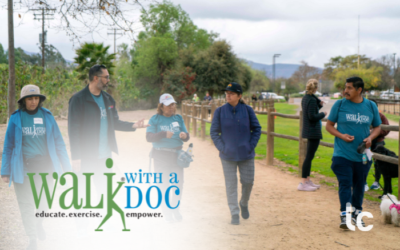As we age, our immune systems naturally weaken, making older adults more vulnerable to certain infections and illnesses. This increased susceptibility means that vaccines are a crucial tool in maintaining health and preventing serious diseases. Immunization helps protect older adults from conditions that can have a greater impact on their health, such as the flu, pneumonia, and shingles. Staying up-to-date with recommended vaccines is a key part of healthy aging, helping to reduce the risk of severe illness, hospitalization, and complications.
Vaccines not only protect individuals but also contribute to community health by reducing the spread of infectious diseases. For older adults, getting vaccinated can mean fewer sick days, reduced risk of complications, and a greater ability to enjoy life to the fullest. In this resource, we’ll explore which vaccinations should adults have, providing insights into which immunizations are recommended and why they matter.
Why Vaccines Are Important for Seniors
While aging, our immune systems gradually weaken, making it more difficult for the body to fight off infections. This natural decline in immune function means that older adults are at a higher risk for illnesses that might be relatively mild for younger people but can become severe or even life-threatening for seniors. Vaccines for seniors play a crucial role in strengthening the body’s defenses, helping to protect against serious infections like influenza, pneumonia, and shingles.
For older adults, preventing severe complications and hospitalizations is especially important. Many illnesses that vaccines protect against—such as the flu or respiratory syncytial virus (RSV)—can lead to dangerous complications, including pneumonia and organ damage. By staying up to date with immunizations, older adults can significantly reduce their risk of these outcomes, maintaining their health and independence for longer.
The Role of Vaccination in Positive Aging
Vaccination is a key component of positive aging, offering a proactive way to protect against illnesses that could otherwise compromise health and quality of life. Staying current with recommended vaccines helps older adults avoid the disruptions and risks associated with preventable diseases, allowing them to focus on the activities they love and remain active in their communities.
By reducing the likelihood of contracting severe illnesses, vaccines also help to prevent long-term health complications that can arise from infections. For instance, the flu can lead to persistent respiratory problems, while shingles can result in chronic pain. Vaccines provide a vital safeguard against these outcomes, supporting overall wellness as part of a comprehensive approach to aging well.
Key Vaccines for Older Adults – Immunization Guide
Vaccines play an essential role in protecting older adults from serious infections by bolstering the immune system’s ability to recognize and combat specific pathogens. As the immune system weakens with age, older adults become more vulnerable to diseases that can result in severe complications, hospitalization, or even death. By stimulating the body’s natural defenses, vaccines help older adults maintain a higher quality of life and independence.
It’s important to remember that immunity can take weeks to develop after vaccination, making it crucial for older adults to plan their immunizations ahead of time. For a detailed explanation of how vaccines work, visit the CDC’s page on vaccine immunity.
Flu Vaccine
The flu vaccine for older adults is one of the most important immunizations. Influenza can be especially dangerous for those aged 65 and older, as their weakened immune systems make them more susceptible to severe flu-related complications. Each flu season brings the risk of complications such as pneumonia, exacerbation of chronic conditions (like asthma or heart disease), and even heart attacks triggered by the strain of fighting the infection.
The flu vaccine is updated annually to protect against the strains most likely to circulate during the upcoming flu season. For older adults, specific formulations like the high-dose flu vaccine or adjuvanted flu vaccine are recommended. These versions are designed to elicit a stronger immune response, offering enhanced protection for seniors. Studies have shown that these higher-dose vaccines can reduce the risk of flu-related hospitalization in older populations.
Getting vaccinated before flu season begins is crucial, as it allows the body time to build up immunity. The CDC recommends receiving the flu shot by the end of October, although vaccination later in the season is still beneficial. For more information on how to protect yourself from the flu, check out our flu prevention tips.
Pneumococcal Vaccine
The pneumococcal vaccine is vital for older adults, as it protects against Streptococcus pneumoniae, a bacterium that can cause severe infections such as pneumonia, meningitis, and bacteremia (bloodstream infections). These conditions can have devastating effects on seniors, with pneumonia being a leading cause of hospitalizations and death in this age group. The pneumococcal vaccine helps to reduce the risk of these serious outcomes.
Even for those under 65, the pneumococcal vaccine is recommended if they have underlying conditions like heart disease, lung disease, or diabetes, as these conditions can increase susceptibility to serious pneumococcal infections. There are various types of pneumococcal vaccines, consulting with a health care provider ensures that older adults receive the most appropriate protection based on their individual health needs.
Prioritize your health with personalized vaccination guidance. Schedule an appointment with TrueCare to discuss your immunization needs and stay protected.
Shingles (Zoster) Vaccine
Shingles, also known as herpes zoster, is a painful rash caused by the reactivation of the varicella-zoster virus—the same virus that causes chickenpox. For older adults, shingles can be particularly severe, leading to postherpetic neuralgia (PHN), a condition characterized by intense and persistent nerve pain even after the rash has resolved. This chronic pain can last for months or even years and can be debilitating for those affected.
The Shingrix vaccine is recommended for adults aged 50 and older to protect against shingles and PHN. Shingrix is administered in two doses, spaced 2 to 6 months apart, providing over 90% protection against shingles in older adults. It is significantly more effective than previous shingles vaccines and remains the preferred option for preventing this painful condition.
Shingles can also affect the eyes, leading to complications such as vision loss, making vaccination an important preventive measure for older adults. By receiving the shingles vaccine, seniors can avoid the pain and complications associated with this virus, contributing to a more comfortable aging process.
Tdap Vaccine
The Tdap vaccine provides protection against tetanus, diphtheria, and pertussis (whooping cough)—three serious bacterial infections. Tetanus, commonly known as lockjaw, can cause severe muscle spasms and stiffness, particularly in the neck and jaw. Diphtheria can lead to severe respiratory issues, and pertussis, or whooping cough, can cause uncontrollable coughing fits that can be life-threatening, especially for infants and older adults.
For older adults, the CDC recommends a one-time Tdap vaccine if they haven’t previously received it, followed by a Td (tetanus-diphtheria) booster shot every 10 years. This vaccination is especially important for older adults who are in contact with young children or newborns, as it helps to prevent the spread of pertussis, which can be deadly for infants.
Receiving the Tdap vaccine not only protects older adults but also helps to safeguard the health of their families and communities. For more information about whooping cough and how it spreads, explore our guide on symptoms and prevention.
Hepatitis B Vaccine
The Hepatitis B vaccine is recommended for older adults, particularly those with diabetes, chronic liver disease, or other conditions that increase their risk of Hepatitis B infection. Hepatitis B is a viral infection that attacks the liver and can lead to serious conditions like cirrhosis, liver failure, and liver cancer. For older adults with weakened immune systems, a Hepatitis B infection can be more severe and harder to recover from.
The vaccine is typically given in a series of doses over several months to ensure full protection. By getting vaccinated, older adults can reduce their risk of chronic liver complications and contribute to the overall reduction of Hepatitis B cases in their communities.
Managing diabetes means taking proactive steps for your overall health, including liver protection. Visit TrueCare’s Older Adult Health Center to learn how we can support your well-being.
HPV (Human Papillomavirus) Vaccine
The HPV vaccine is most commonly associated with younger individuals, but it can also provide benefits for adults up to age 45. Human Papillomavirus (HPV) is a common virus that can lead to various types of cancer, including cervical, anal, and throat cancers. For older adults who have not been vaccinated, receiving the HPV vaccine can help prevent new HPV infections and lower the risk of developing related cancers.
The vaccine protects against the strains of HPV most likely to cause cancer and genital warts, offering a proactive way to safeguard long-term health. If you are an older adult considering the HPV vaccine, consult with your health care provider to determine if it’s right for you.
COVID-19 Vaccine
The COVID-19 vaccine remains a critical part of protecting older adults from severe illness and complications related to the coronavirus. The CDC continues to recommend COVID-19 booster shots for older adults to maintain immunity against evolving variants, especially for seniors and those with underlying health conditions that place them at higher risk.
Boosters help strengthen immunity that may have decreased over time, ensuring continued protection against severe symptoms, hospitalization, and long COVID. Staying up to date with COVID-19 vaccinations can provide peace of mind for older adults and their families, helping to prevent the spread of the virus in communities.
RSV (Respiratory Syncytial Virus) Vaccine
RSV is a common respiratory virus that can cause serious illness in older adults, especially those aged 60 and older or with underlying health conditions. While RSV often presents as a mild cold in younger individuals, it can lead to bronchiolitis, pneumonia, and even hospitalization in seniors.
The RSV vaccine is specifically recommended for older adults to prevent severe respiratory infections during the RSV season, which often overlaps with flu season. Vaccination against RSV can reduce the risk of hospitalization and complications, helping seniors stay healthy throughout the colder months.
For more information on the RSV vaccine, visit the CDC’s RSV vaccine guidelines.
How to Stay on Top of Your Vaccination Schedule With TrueCare – Affordable Health Care for Seniors
Managing your vaccination schedule is essential for staying healthy as you age. Here are a few simple tips to ensure you’re up to date with your immunizations:
- Keep a Record: Maintain a vaccination record to track the dates of your shots and when boosters are due. This helps ensure you never miss a critical update.
- Consult Your Healthcare Provider: Regularly discuss your immunization needs with your health care provider. They can recommend vaccines based on your age, health conditions, and lifestyle.
- Check Your Immunization Status: Periodically review your vaccination history to ensure you’re protected against preventable diseases.
At TrueCare, our team is here to support your health needs. Visit our Older Adult Health Center to consult with a provider about your vaccination schedule and ensure you’re prepared for every season.
DISCLAIMER: THIS WEBSITE DOES NOT PROVIDE MEDICAL ADVICE
The information, including but not limited to, text, graphics, images, and other material contained on this website are for informational purposes only. No material on this site is intended to be a substitute for professional medical advice, diagnosis, or treatment. Always seek the advice of your physician or other qualified health care with any questions you may have regarding a medical condition or treatment and before undertaking a new health care regimen, and never disregard professional medical advice or delay in seeking it because of something you read on this website.





